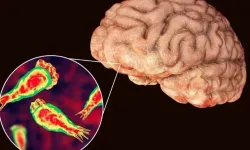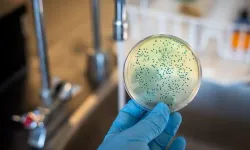Over-salting your food could put you at risk of certain cancers, researchers have revealed.
According to a new study published in the journal Gastric Cancer, people who add salt to their meals are 40 percent more likely to develop stomach cancer than those who do not.
This study confirms other studies that have found a link between high salt consumption and stomach cancer in Asian countries, where saltier foods are commonly consumed.
"Our study shows the link between the frequency of added salt and stomach cancer also in Western countries," Selma Kronsteiner-Gicevic, a researcher at the MedUni Center for Public Health Vienna, said in a statement.
DATA FROM 470,000 PEOPLE WERE ANALYZED
Researchers from the Medical University of Vienna in Austria analyzed data collected from more than 470,000 adults across the UK between 2006 and 2010.
Participants were asked a series of questions, including the question "How often do you add salt to your food?". They then compared their survey answers with the levels of salt detected in the urine of cancer patients.
39 PERCENT LIKELIHOOD OF DEVELOPING CANCER
The researchers found that people who frequently or always added salt to their meals were 39 percent more likely to develop stomach cancer over an 11-year period than those who added little or no salt.
"Our results also held when demographic, socioeconomic and lifestyle factors were taken into account, and were equally valid for common comorbidities," Kronsteiner-Gicevic said.
But this increase accounts for 40 percent of the already relatively small risk.
According to the American Cancer Society, the lifetime risk of developing stomach cancer is about one in 101 for men and one in 155 for women.
Stomach cancer is the fifth most common type of cancer and the third leading cause of cancer-related deaths.
Other risk factors include infection with the bacterium Helicobacter pylori, age, smoking, chronic gastroenteritis and obesity.
"With our study, we want to raise awareness of the negative effects of excessively high salt consumption and provide a basis for measures to prevent stomach cancer," study co-author Tilman Kühn, a researcher at the MedUni Center for Public Health Vienna, said in a statement.
















